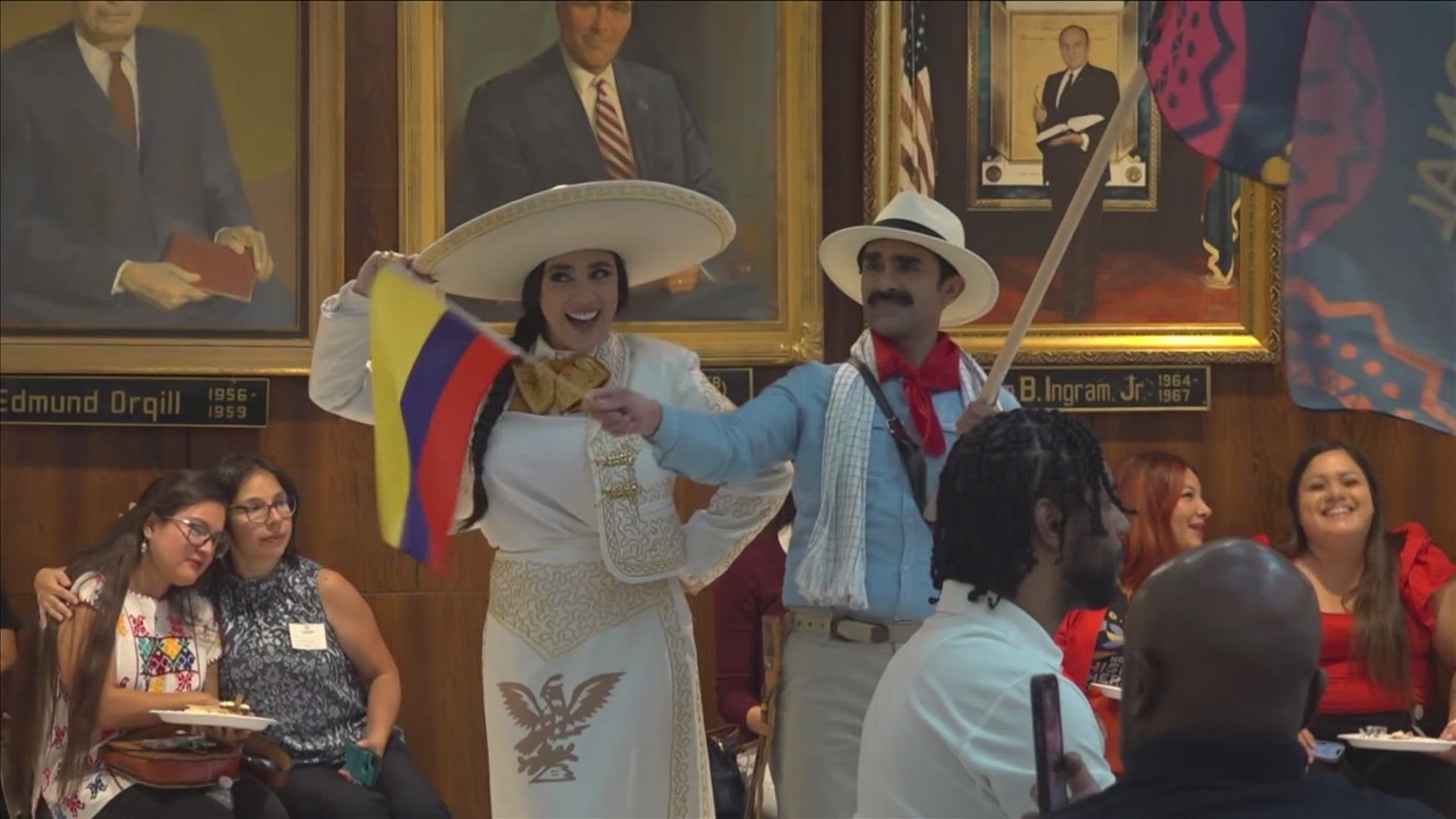MEMPHIS, Tenn. — At the start of Hispanic Heritage Month, the Memphis-area is seeing a huge issue take center stage in the courts — having translators in the justice system.
Back in the Spring, ABC24 came across this issue of translators back in the spring while sitting in on Eviction Court. There was a gentleman who spoke Spanish. His case had to be delayed because there were no court interpreters available.
“One of the reasons Memphis is such a great city, I think is because we are so diverse,” said Jim Strickland, Memphis Mayor.
While diversity is growing fast, some resources lag behind. It is a sentiment that the editor-in-chief of La Prensa Latina, Vivian Fernandex, is familiar with.
“The Hispanic community is growing immensely in Memphis and Shelby County — obviously, a lot of them don’t speak English," Fernandez-de-Adamson said. "There’s a major need for translators in the court.”
Fernandez-de-Adamson said she has spoken with community members who came to court but no court interpreter is available.
“If it was me, I would feel absolutely frustrated,” Fernandez-de-Adamson said.
She said she has seen the toll it takes on court interpreters.
“They have all these cases — they have to represent these people but again, they don’t have somebody that can help them with their own language,” said Fernandez-de-Adamson.
ABC24 reached out to Shelby County government. They said court interpreters are provided by the state.
Tennessee state courts said the state funds an interpreter program. On their website, they list 126 court interpreters throughout Tennessee.
Five are assigned to Memphis.
“You may be waiting an hour or two just to get that interpreter because there may be just one for the whole building or for the whole court system,” said Carmelita Hernandez, a Memphis resident.
“They’re going to have to open more positions for court translators or maybe have a workshop or something to train these people,” said Fernandez-de-Adamson.
Hernandez said she is one of those who tried to become a court translator.
“There’s also too much red tape," Hernandez said. "They want certification. Certification costs. Some of us that do know how to translate want those jobs and would like those jobs, but because we don’t have the certification, we’re stuck unless you know somebody that knows somebody.”
“There’s so many people that don’t speak English or maybe they do but not so good. They will feel more comfortable when they’re speaking their own language,” said Fernandez-de-Adamson.
According to state courts, everyone has a right to an interpreter at no cost. ABC24 also spoke with some lawyers who said they even had to hire interpreters because none were provided by the state.
Michael Williams, Chief Administrative Officer for General Sessions Court Clerk’s Office, said interpreters are assigned on an as needed basis at the request of the Judge.

